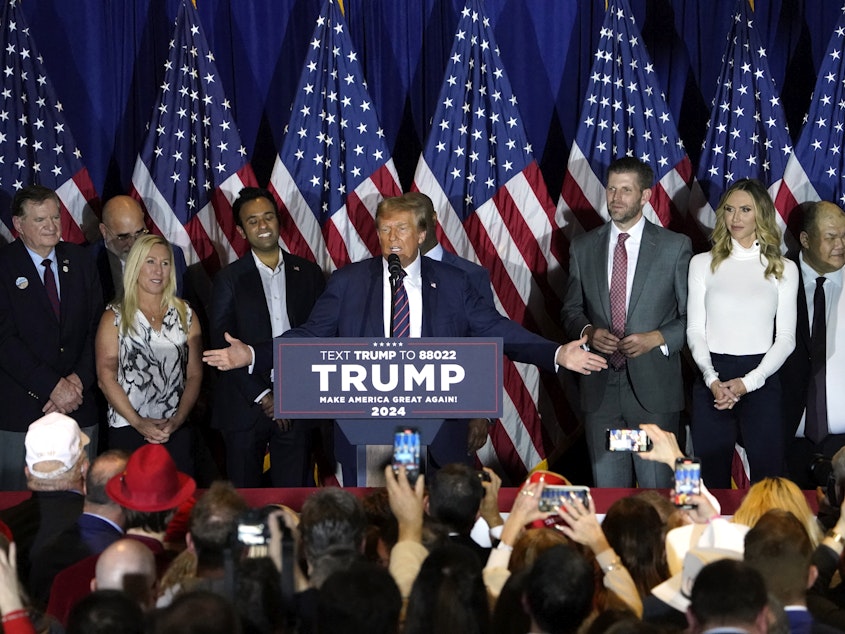Here's a timeline of when presidential candidates became likely nominees

Despite her loss in New Hampshire, Nikki Haley is insisting that she is staying in the race and going on to her home state of South Carolina and the slate of states on Super Tuesday, March 5.
"New Hampshire is first in the nation; it is not last in the nation," Haley said tonight. "This race is far from over."
Even Haley supporters recognize though that it's an "uphill climb," as former Arkansas Gov. Asa Hutchinson, a former candidate for this very nomination who dropped out after Iowa, said during NPR live coverage of the primary.
South Carolina takes place a month from now, Feb. 24 (after Nevada, which holds its caucus on Feb. 8 but Haley is not on that ballot). Does she stay in for a month to South Carolina? Will she have the money?
If Haley does decide to suspend her campaign by Feb. 17, it would be the earliest any candidate — who wasn't an incumbent president — in the last 40 years would have wrapped up the nomination by virtue of their top opponent exiting.
Primaries were not really fought for delegates in a sweeping way until the 1980s, and even then, the process wasn't as formalized as it is now. Looking at the dates for when a candidate wrapped up the nomination, going back to 1988, the earliest anyone did so was Feb. 18.
John Kerry wrapped up the 2004 Democratic presidential nomination on Feb. 18 when then-Vermont Gov. Howard Dean dropped out of the race. The earliest anyone officially reached the magic number of delegates needed was March 5 for Republican John McCain in 2008. The primaries and caucuses that year were like an arms race with states leapfrogging each other to be first. They wound up starting about two weeks earlier than this year.
At the rate Trump won in Iowa and New Hampshire, he could roughly clinch by March 23 – unless something drastic changes. [Copyright 2024 NPR]
